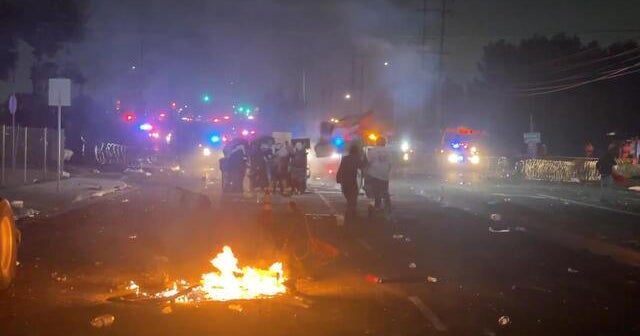The Potential Incarceration of Donald Trump: A Deep Dive into the Ramifications and Legal Complexities
In the swirling eddy of political and legal controversies, the conversation often turns to high-profile figures and their interactions with the law. Among such discussions, the hypothetical incarceration of former President Donald Trump invariably captures widespread attention. Given Trump’s unique stature and the unprecedented nature of such a scenario, it is crucial to explore the intricacies and consequences tied to the possibility of his imprisonment.
The Nature of Potential Incarceration
Should Donald Trump be convicted of a crime, particularly one relating to his actions during or post-presidency, he would likely be placed in a minimum-security prison, as is common for those convicted of white-collar crimes. However, it is essential to dispel any misconceptions about these facilities; despite being the least restrictive, they are far from the comfort or laxity of a “country club.” Alexander Reinert, a professor at Cardozo Law School, elucidates that, although a minimum-security setting might involve dorm-like accommodations as opposed to traditional cells, it still imposes considerable restrictions on freedom.
The safety of a prominent figure like Trump in a minimum-security environment is another significant concern. High-profile inmates present unique security challenges, often necessitating separation from the general prison population and potentially requiring continued Secret Service protection. Transitioning him to a higher-security facility might be a solution, as such places are better equipped to handle the nuanced security needs of individuals of Trump’s profile.
Legal and Political Ramifications
An arresting feature of Trump’s legal jeopardy is its potential intersection with his political aspirations. Notably, the constitutionality and subsequent eligibility criteria permit a convicted felon, provided they meet the age, citizenship, and residency requirements, to run for presidential office. Trump has indicated, even amid legal tumult, an unwavering intent to continue his political career, suggesting that an indictment might even bolster his support base.
Running a presidential campaign from behind bars, though legally feasible, poses a plethora of practical challenges. The historical precedent set by Eugene V. Debs, who ran for president while incarcerated in 1920, demonstrates the possibility, albeit with severe logistical and communicational limitations. Professor Reinert underscores the restricted capabilities of conducting a standard campaign, including the inability to hold rallies, meet with donors, or broadly engage with supporters.
Furthermore, a prolonged legal battle could potentially extend beyond the 2024 presidential election, considering the complexities and probable duration of trials and appeals, thus impacting both his candidacy and any resulting sentence.
Presidential Pardons and Self-Pardoning
The discussion about Trump’s potential pathways to evade conviction inevitably converges on the subject of presidential pardons. However, it is vital to note that since his charges could be at the state level, a presidential pardon would be ineffectual as it only applies to federal offenses. The controversial notion of self-pardoning was reportedly considered by Trump before his tenure concluded, sparking a robust debate among legal scholars regarding its constitutionality. A 1974 Department of Justice memo suggested that a self-pardon would be unconstitutional, although this stance is not legally binding, and no definitive precedent exists.
Should Trump attempt to self-pardon, it could instigate further political repercussions, such as impeachment for abuse of power, indicating that even a self-pardon might not absolve him of all potential consequences.
Trump’s Broader Legal Troubles
Apart from any immediate legal challenges, Trump remains embroiled in numerous other investigations that intensify his legal vulnerability. These include inquiries into alleged attempts to influence the 2020 election results, mismanagement of classified documents, and actions related to the January 6th insurrection. Each of these issues compounds the legal landscape Trump navigates, underscoring a sustained period of legal and political uncertainty.
Conclusion
The hypothesis of Donald Trump facing prison time is fraught with unprecedented legal, political, and security considerations. From the nature of his incarceration to the impact on his potential political comeback, and the overarching specter of multiple legal battles, the scenario paints a complex picture of intertwining legal realities and political strategies. As these events continue to unfold, they will undeniably shape not just the future of an individual but the contours of American political life and law enforcement norms. The intersection of high-profile personalities with the rigid frameworks of law continues to provoke discussion, debate, and a reevaluation of the principles at the heart of American jurisprudence and democratic practice.









